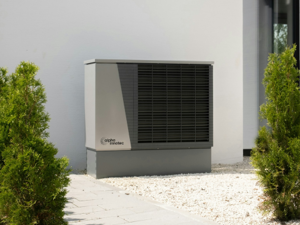Permitted Development (England) and noise assessment (UK)

Today, 29 May 2025, amendments to The Town and County Planning (General Permitted Development) (England) (Amendment) Order 2025 
Planning in England
The Permitted Development (PD) amendments seem to be generally welcomed by the media, including the BBC 

- Dropping the restriction preventing installation within one metre of a boundary
- Allowing for two heat pump units instead of one
- Increasing the size limit of external units from 0.6m3 to 1.5m3
Noise
To address potential increases in noise resulting from the easing of PD, an update to MCS 020 has been issued by mcscertified.com 
It should be noted that, prior to this change, the English planning legislation specified the required noise assessment as ‘MCS 020 or equivalent’. The ‘or equivalent’ alternative has now been dropped. This small change has had a significant impact, because it means that the noise assessment forms offered by people such as
Heat Geek 

The good news for DIY installers is that the new MCS 020 a) Issue 1.1 

Final thoughts
While Checkmark welcomes relaxation of PD to encourage uptake, it is concerned that parts of the legislation rely on standards controlled and published by a separate organisation (The MCS Charitable Foundation). It is even more concerning that the organisation’s wholly owned subsidiary stands to gain significantly from installer certification and related charges.
The removal of ’equivalent standards’ from PD may have been well intentioned, but has resulted in a situation where installers are not legally required to be MCS certified, but now can’t do a noise assessment unless they are.
A previous blog post, written prior to these PD changes, outlines some of Checkmark’s concerns regarding MCS. Removing ’equivalent standards’ from PD means that those concerns have now increased.